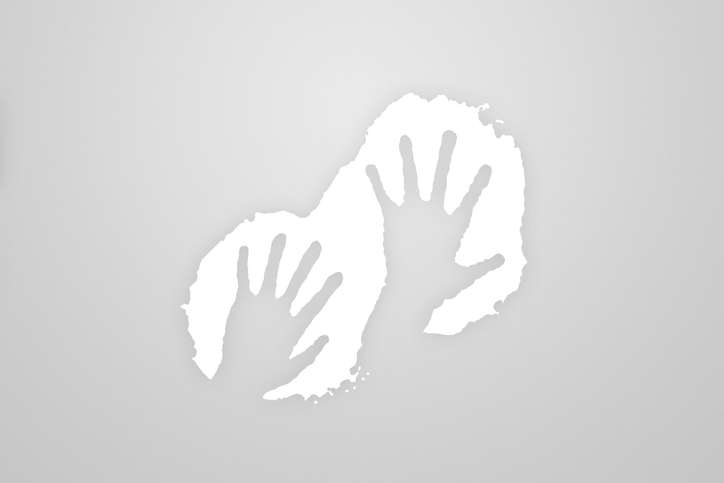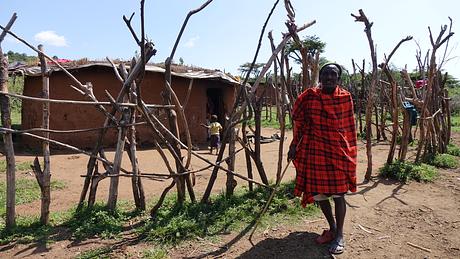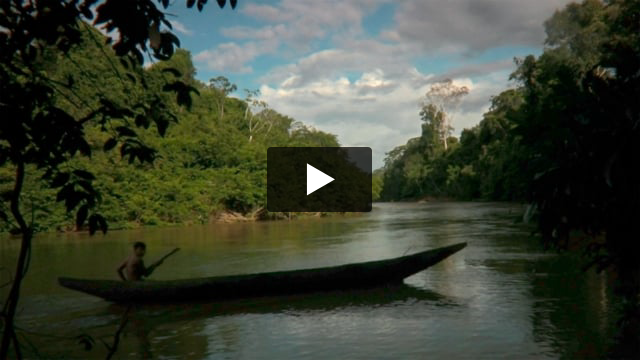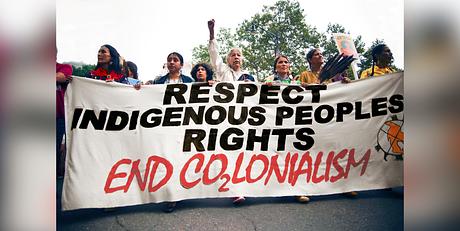Maasai demand Volkswagen pull out of carbon offset scheme on their lands
July 8, 2025
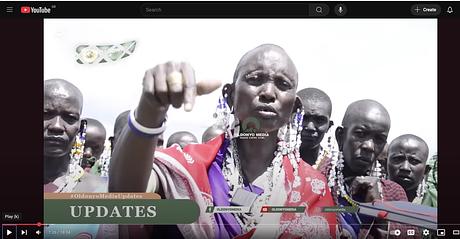 © Oldonyo Media
© Oldonyo MediaMaasai Indigenous people in Tanzania have called on Volkswagen (VW) to withdraw from a controversial carbon credits scheme which violates their rights and threatens to wreck their livelihoods.
In a statement, the Maasai International Solidarity Alliance (MISA) denounced the “loss of control or use” of vital Maasai grazing grounds, and accused VW of making “false and misleading claims” about Maasai participation in decision making about the project.
Many Maasai pastoralists have already been evicted from large parts of their grazing lands for national parks and game reserves, with highly lucrative tourist businesses operating in them. Now a major new carbon-credit generating project by Volkswagen ClimatePartner (VWCP) and US-based carbon offset company Soils for the Future Tanzania is taking control of large parts of their remaining lands, and threatening livelihoods by upending long-standing Maasai grazing practices.
The Maasai have not given their free, prior and informed consent for the project. They fear it will restrict their access to crucial refuge areas in times of drought, and threaten their food security.
Ngisha Sinyok, a Maasai community member from Eluai village, which is struggling to withdraw from the project, told Survival: “Our livestock is going to be depleted. We will end up not having a single cow.” Asked about VW’s involvement in the project, he replied, “It is not a solution to climate change. It is just a business for people to make money using our environment. It has nothing to do with climate change.”
Another Maasai man, who wished to remain anonymous for fear of reprisals, said: “They use their money to control us.” A third said: “Maasailand never had a price tag. In Maasailand, there is no privatization. Our land is communal.”
Survival International’s Director of Research and Advocacy, Fiona Watson, said today: “The carbon project that Volkswagen supports violates the Maasai’s rights and will be disastrous for their lives, all so the company can carry on polluting and greenwash its image. It takes away the Maasai’s control over their own lands and relies on the false and colonial assumption that they are destroying their lands — which is not supported by evidence.
“The Maasai have been grazing cattle on the plains of East Africa since time immemorial. They know the land and how to manage it better than carbon project developers seeking to make millions from their lands.”
VW’s investment in the project, whose official name is the “Longido and Monduli Rangelands Carbon Project”, is believed to run to several million dollars, and has contributed to corruption and tensions in northern Tanzania, according to MISA’s report on the project.
An adjacent project in southern Kenya, also run by Soils for the Future, is beset with similar problems, and has already sparked resistance from local communities.
Survival International’s Blood Carbon report revealed that the whole basis for these “soil carbon” projects is flawed, and unsupported by evidence. Survival documented similar problems with the highly controversial Northern Kenya Grasslands Carbon Project. That project suffered a blow in a Kenyan court and was suspended and put under review by Verra, the carbon credit verification agency, for an unprecedented second time.
Notes to Editors:
- Further undermining VW’s “green” credentials, there are serious concerns that the company might source nickel for their electric vehicle batteries from the territory of uncontacted Indigenous Hongana Manyawa people in Halmahera, Indonesia. VW sources batteries from CATL, a joint venture partner in a new battery factory inaugurated last month just a few miles from the territory of the uncontacted Hongana Manyawa.
- VW has also signed MOUs with Eramet and Tsingshan, which, together with the Indonesian state mining company, own the biggest nickel mine in the world. That mining operation is currently destroying the uncontacted Hongana Manyawa’s territory.
- Volkswagen ClimatePartner (VWCP) is a joint venture between the auto maker and ClimatePartner, a controversial German company which provides carbon offsetting services to polluting businesses.
- The 1 million hectare (2.5 million acre) project depends on undermining the Maasai’s traditional and long-standing grazing practices, requiring them to change to ‘Rapid Rotational Grazing’, which removes flexibility and causes hardship – particularly in dry seasons.


